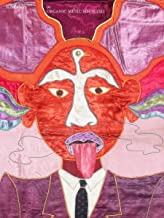New & Diverse Voices on Jazz highlights recent published reviews, feature articles, op-ed, historical and analytical non-fiction works by women, among others.

Jennifer Lucy Allan and Kira Grunenberg have written strong, observational pieces on the late multi-instrumentalist/composer-improviser Don Cherry and Argentine vocalist Roxana Amed, respectively.
Both are ambitious writers, who have the ability to convey layers of information and the complex backgrounds and musical intentions of their subjects. They keep themselves out of the writing, never spewing too much of their own tastes and opinion, yet their writers’ voices and affinities for the musicians are stealthily intertwined in every sentence.
The Strange World Of… Don Cherry, in The Quietus, by Jennifer Lucy Allan

from Organic Music Society
(Blank Forms Editions)
Allan writes a thorough yet concise feature on the multi-faceted Cherry, tracing his career primarily as a trumpeter. Her voice is clean and she cuts out the fat, leaving no morsels of personal adoration word-wise, but her respect is apparent, illuminating her carefully crafted writing. She begins by exploring an intimate trait cited by Ornette Coleman, Cherry’s great collaborator: His nearly perfect memory. Those who are not jazz scholars or critics wouldn’t know that he had a biological secret weapon that allowed him to learn and reproduce sounds without hesitance and constant study.
Then she masterfully moves through from his first appearances as a part of the Ornette Coleman Quartet to the 1970s, when Cherry’s “vision had faded.” But the article is nowhere near halfway through. Allan offers some esoteric criticism and shows her knowledge of Cherry’s work by examining his ongoing musical output and catalog of albums.
From her piece: “There is something deeply sympathetic in all of Cherry’s music, in the shaping of the sound and the way influences are melded without visible joins. Writing on him often mentions how much he loved to spin the dial on shortwave radio, and is key to understanding the fusion of sounds, melodies, song forms and tunings that appear on his records – his was a pan-global folk music that rejected territorial boundaries. This notion

of music as a universal language was present in his groups on a fundamental level – one group did not have a shared language between them, forcing communication to happen in other ways.”
Following these sentimental and thoughtful words, Allan changes style of from profile to essay, and finally a list of 10 of Cherry’s most important work, in her welcomed opinion.
This article resonates because it is out of the box. The structure is different than usual. Allan’s voice is versatile yet consistent as she builds a multi-layered exploration of a multi-dimensional artist. She is stoic yet adventurous, factual yet caring and of course, highly intelligent. This memorable piece that should be read for historical information on Cherry as well as insight about the sound, prevalence and importance of his unique, distinct music.
Kira Grunenberg, a frequent contributor to Downbeat Magazine, covers a lot of ground, citing the

geographical, emotional and artistic complexity of Roxana Amed’s latest album, Ontology.
Grunenberg begins broadly, noting Amed in a way that is not sensationalizing the presence of a woman of color jazz musician but connects the word with the artist’s international background and pride in her Argentinian roots. As she moves on in the review, she examines a few songs that define Amed’s musical intention and structure.
“Only the title track—which references the study of the nature of being and was chosen for how Amed felt it perfectly characterized her inner ruminations — better embodies Ontology’s conceptual objectives.”
Jordannah Elizabeth is a Baltimore-based writer and lecturer. See her Amsterdam News report “Impulse! Releases Unheard Music of Alice Coltrane”





